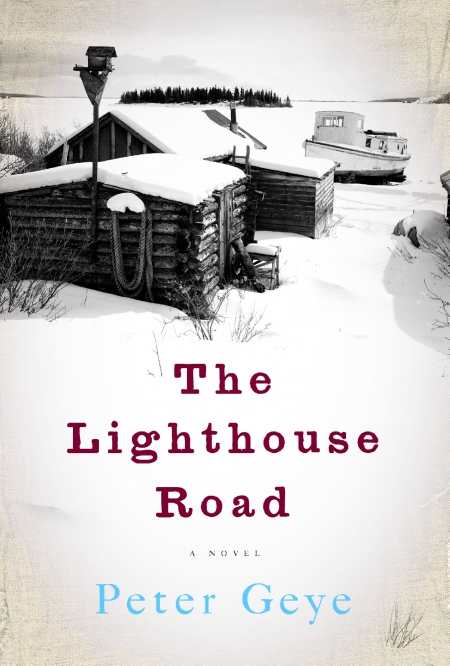The Lighthouse Road
Thea Eide, a beautiful young Norwegian woman seeking a better life, immigrates to Gunflint, Minnesota, to work on her aunt and uncle’s farm. By the time she reaches her destination, a place that looks surprisingly like the home she just left, the aunt is dead and the uncle crazy. She finds work as a cook in an isolated logging camp. Fifteen months later, she gives birth to a son and dies.
Fast-forward twenty-four years and we meet Thea’s son, Odd Eide, as he sets off in his skiff from the northern shore of Lake Superior to pick up six barrels of bootleg whiskey. In this novel, the parallel stories of mother and son are told in twenty-five chapters from six different points of view, skipping between the 1890s and the 1920s. Odd has been raised by Hosea Grimm and his adopted daughter, Rebekah, and it is the larger-than-life Grimm—Gunflint’s pharmacist, midwife, and photographer—that binds the two timeframes together. The townspeople, grateful for Grimm’s presence in their midst, turn a blind eye to his more irregular business dealings. But Odd wants more, and as winter approaches, he and Rebekah flee.
As with his debut novel, Safe from the Sea, Geye claims his native Minnesota as his literary territory. It is only in the bleak winter landscape that the characters are offered moments of transformation. At the logging camp, Thea watches the men return for their meals. “As their coats melted in the mess hall’s heat, they appeared to be vaporizing …While plating their slices of pie she would puzzle over their evanescence as though it were a religious rite. Day after day they entered and took their seats and began their disappearance.”
It is not as easy for Odd and Rebekah to disappear. Both acknowledge they are better off for Grimm’s support, but he has also abused them, and in a just world he would be behind bars. Separately, they return to Gunflint.
In this smart, elegantly written book, loss trumps hard work and perseverance; family bonds shackle as well as shelter. There is a brief moment of solace at the end when Rebekah stares out at Odd and his son fishing on the frozen lake “even as the fissures spread like veins through the ice, even as the wind stiffened from the northeast.” Once again, we can expect disaster.
Reviewed by
Karen Ackland
Disclosure: This article is not an endorsement, but a review. The publisher of this book provided free copies of the book to have their book reviewed by a professional reviewer. No fee was paid by the publisher for this review. Foreword Reviews only recommends books that we love. Foreword Magazine, Inc. is disclosing this in accordance with the Federal Trade Commission’s 16 CFR, Part 255.

